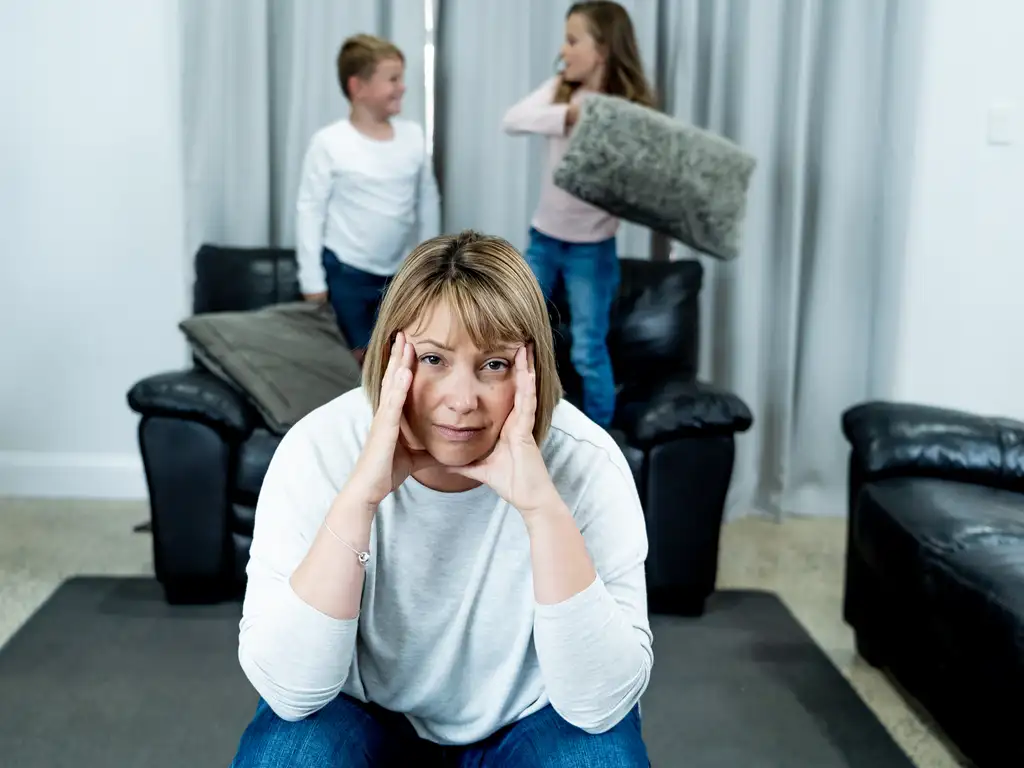The World Health Organization (WHO) reported that depression and anxiety rates increased by over 25% in the first year of the pandemic. In 2022, around a billion people had a mental disorder. Ideally, these alarming numbers would urge countries to make a move to invest in the healthy coping skills.
Unfortunately, there’s still a global need for access to social support, including knowledge of coping skills for children, teens, adults, and parents.
Many countries already have active Behavioral Health programs focusing on early identification and coping strategies. Still, not everyone has access to Behavioral Health care, posing an even more significant challenge for those living in rural or remote areas.
Coping strategies and coping skills are crucial because Behavioral Health issues don’t choose a time or place, ancestry or standing, individual self-concept or age.
Care Plus NJ is committed and believes we can help children, teens, adults, and parents build resilience. By learn coping skills and coping strategies to replace unhealthy coping skills with emotional health to practice healthy coping skills on a regular basis.

The Importance of Practicing Healthy Coping Skills
A person’s emotional and psychological well-being is vital to cope with everyday life.
Various factors influence a person’s mental happiness, including different situations in life and genetics. Ultimately, mental happiness is just as important as physical health, even if it’s not as visible.
According to the WHO, seven in ten people with psychosis in high-income countries have access to treatment. On the other hand, only 12% of people from low-income nations receive the same care. Moreover, only one-third of people with depression receive proper care across all countries, with high-income countries offering “minimally adequate” treatment in 23% of cases. In lower middle-income countries, only 20% of cases receive the same.
Mental happiness is more than “feeling sad” or “feeling happy.” It’s the ability to manage feelings, cope with daily stressors, and connect with people.
Many people facing a stressful situation don’t know the negative impact, thinking their feelings are simply a part of life.
Unhealthy Coping Skills Can Lead to Mental Illness
Unhealthy coping skills can lead to mental illness. Negative coping skills causes negative thoughts and research shows putting off dealing with stress, or stressful situations can create patterns that are unhealthy physically and emotionally.
Not embracing healthy coping strategies can cause:
- Overeating or not eating enough
- Insomnia or sleeping too much
- Isolating yourself
- Distancing from favorite activities
- Fatigue
- Numbness or lack of empathy
- Unexplainable body pains
- Hopelessness and helplessness
- Smoking, drinking, or substance abuse
- Confusion and forgetfulness
- Anger and irritability
- Anxiousness
- Sadness
- Fright
- Mood swings
- Constant flashbacks or thoughts
- Hearing voices in your head
- Thoughts of self-harm or harming others
- Inability to carry out daily chores and activities
Many still have little to no idea about mental coping strategies in general, resulting in a lack of social support, emotion-focused strategies, and problem-solving skills.

Coping Skills for Children
It’s crucial for children to develop healthy coping skills while growing up. Without support from family members or other trusted adults, such as teachers or counselors, children might develop unhealthy coping mechanisms like aggression, withdrawal, and substance abuse.
Healthy coping skills for children include emotion focused strategies and problem focused strategies.
Emotion-Focused Strategies
Labeling Emotions.
It’s helpful to teach children how to identify and express their emotions in age-appropriate language. Encouraging kids to name their feelings can help build emotion focused coping skills.
Deep Breathing.
When children practice relaxation exercises, such as deep breathing, it can help them calm down and manage their emotions. Parents can teach children positive coping methods like yoga and simple breathing techniques, such as counting to ten while inhaling and exhaling.
Exercise and Physical Activity.
Exercising has many benefits for physical and mental well-being. It can help reduce stress, boost confidence, and even improve concentration. Encouraging children to stay active can also help them manage their emotions.
Artwork.
Art is a great way to express emotions in healthy ways. Children can draw, paint, or sculpt their feelings and thoughts. Certain coping strategies for example, if a child is feeling overwhelmed, they can paint a picture of what that looks like to them.
Reading and Writing.
Writing down thoughts and feelings can help children find ways to cope with their emotions. Books can also be beneficial, as they teach them more ways to express themselves.
Music.
Listening to music can help children remember happy moments and experiences. Music also helps them relax, so they can focus on the present moment instead of worrying about the future.
Games.
Games are great for developing strong coping strategies and problem-solving skills and learning how to work with others. Cooperative games can also help children learn social skills and become more confident with their peers.
Positive Self-Talk.
Encouraging positive self-talk can help children learn to be more accepting of themselves. Remind them that everyone makes mistakes and self-love is important.
Problem-Focused Strategies
- Ask For Help. One coping skill that can change a child’s life, is knowing when and how to ask for help. Encourage them to discuss their issues with a trusted adult, like a teacher or parent.
- Problem-Solving. Teaching children the coping strategy of problem-solving skills can help them devise solutions to their issues. Help them break down complex problems into smaller steps and brainstorm possible solutions.
- List Pros and Cons. Writing down the pros and cons of a situation can help children make informed decisions and see in individuals of african descent and white their positive and negative thoughts.

Teens
According to WHO, one in seven, ten to 19-year-olds globally experiences Behavioral Health problems. Suicide is the fourth leading cause of death among 15 to 29-year-olds, and failing to address adolescent Behavioral Health conditions extends to adulthood.
Teenagers undergo many changes, such as hormonal, physical, and emotional development, which can be overwhelming and cause stress. The most common Behavioral Health problems teens experience are anxiety, depression, and behavioral disorders.

Coping Skills for Teens
Difficult circumstances surrounding a teens ability to have the means to address coping skills can be challenging. Seeing a funny movie can cause distress if it is not affordable. Teenage stress can cause more stress for parents. The key to coping skills and coping strategies to manage stress with teens is to be positive and engage them to find a solution that fits for them.
Like children, teens also need social support to stay mentally healthy. Some coping strategies teens can use to cope with their emotions and stress are:
Getting Enough Sleep.
Eight to ten hours of sleep each night is recommended for teens. Quality sleep helps them focus on their studies and other activities.
Exercising.
Planning ahead to allow for regular exercise. Exercise releases feel-good hormones and is a more positive way to manage their emotions.
Talking Things Out.
Teens need to have someone to talk to and process their problems. For teenagers, talking can be a powerful tool to cope with stress. Encourage them to see a counselor or join support groups so they can share their worries and get advice.
Making Time For Fun and Rest.
Teens should take breaks from their studies and other activities to relax and have fun. Many teens cope with stress by punching walls when they get angry. Having a punching bag available is often a great coping and stress outlet.
Spending Time with Nature.
Spending time outdoors helps teens relax and stay connected with their natural environment. Nature heals and provides a sense of calmness.
Write.
When a teen chooses to write down their thoughts and feelings it can become one of many positive and useful tools to help process their emotions in a safe space.
Practicing Mindfulness.
Teaching teens mindfulness techniques can be helpful to maintain control in the moment and focus on their breathing.

Adults
Over 20% of adults aged 60 and above suffer from a mental or neurological disorder, and 6.6% of all functional limitations are attributed to these disorders.
Yes, adults can be more resilient and have more significant resources than children and teenagers, but they still experience Behavioral Health issues. Adults can have more stressors, health problems, and life-changing events than other age groups, leading to helplessness and other difficult emotions.
Coping Skills for Adults
Adults can easily get lost in their endless responsibilities and stressors. However, incorporating some coping techniques into their daily lives can help them focus on the present to manage stress:
Setting Realistic Goals.
Unrealistic goals only lead to pressure and disappointment. Setting realistic goals and breaking them down into smaller tasks can be helpful for adults to accomplish more without feeling overwhelmed.
Taking Breaks From Work.
Taking frequent breaks from work helps adults stay focused and prevents them from feeling stress and burn out. Adults can spend time and engage with families and friends and maintain humor in life together.
Meditating or Practicing Yoga.
Meditating or doing yoga can be helpful for adults stay grounded and control their emotions. Other coping skills include regular exercise or anything that reduces stress and allows them to reconnect with their bodies.
Maintaining a Healthy Diet.
Physical and Behavioral Health are intertwined. Eating nutritious food can help adults maintain their energy levels and good physical and psychological health free from daily stress.
Getting a Good Night’s Sleep.
Adults need to get seven to nine hours of sleep every night. Quality sleep helps them stay alert and focused.
Getting Professional Help.
Adults may need professional help to cope with emotional or stressful problems. Talking to a therapist can help them find effective ways to deal with stress and anxiety.

Parents
Parenting is not easy. Parents can easily feel overwhelmed and exhausted as they juggle work, parenting, and other responsibilities. They may experience feelings of guilt, frustration, and even despair. Some parents feel they must forget about themselves and only focus on their children once they become parents. However, this is unhealthy, and not giving importance to their Behavioral Health can significantly affect their stress level and coping process which will unfortunately effect their children.
Parents struggling with Behavioral Health problems can still care for their children with support from family, friends, and professionals. Looking after yourself is still vital, especially when stigma or unfair treatment is still prevalent. Forgetting that you’re still a person when you become a parent can lead to stress and burnout.
Coping Skills for Parents
Parents can utilize the following coping skills to manage their Behavioral Health:
Building a Support Network.
Parents can find support from family, friends, and professionals. A strong network of people who understand their situation provides emotional and mental support.
Having a Routine.
Establishing a routine helps parents stay organized and in control. Specific meals, chores, activities, and bedtimes can give them more energy and free time to enjoy themselves with their children.
Getting Active.
Exercise helps release endorphins, the hormones that make us feel happy and relaxed. Exercise for at least 30 minutes daily to reduce stress and stay healthy.
Taking Breaks.
Taking regular breaks helps parents stay focused and refreshed. Parents can schedule time for themselves and do something that makes them happy, such as reading a book or going out with friends.
Setting Boundaries and Limits.
Setting boundaries helps children learn to respect their parents, while limits help them understand acceptable behavior. Parents should be consistent in setting these boundaries and limits.
Seeking Professional Help.
Talking to a therapist can be very beneficial when parents struggle with Behavioral Health issues. A professional can help them find effective ways to deal with stress and anxiety.
Coping Skills and Coping Strategies
Caring for our minds and bodies is essential, especially during difficult times. While there’s still a global struggle with Behavioral Health stigma and unfair treatment, we must equip ourselves with the right knowledge to care for our mental well-being.
It is essential to know the right coping skills and coping strategies to not let daily stressors control our lives.
Children, teens, adults, and parents can benefit from utilizing effective tools, coping skills and coping strategies that are helpful in different situations in ones daily life . Developing a support network, regular exercise, engage with others, take breaks when needed, set boundaries and limits, and seeking professional help can all be beneficial.
The process of recognizing and dealing with all the stressors before us with healthy coping skills and coping strategies is a lifelong journey. Taking care of yourself is the most important thing you can do.
Sources:
https://www.who.int/health-topics/mental-health#tab=tab_1
https://www.who.int/news-room/fact-sheets/detail/mental-disorders
https://ourworldindata.org/mental-health
https://www.singlecare.com/blog/news/mental-health-statistics/
https://news.un.org/en/story/2022/06/1120682
https://www.ncbi.nlm.nih.gov/books/NBK92254/
https://www.healthline.com/health/mental-health
https://www.cdc.gov/childrensmentalhealth/basics.html
https://www.verywellfamily.com/coping-skills-for-kids-4586871
https://www.who.int/news-room/fact-sheets/detail/adolescent-mental-health
https://www.apa.org/topics/children/stress
https://www.who.int/news-room/fact-sheets/detail/mental-health-of-older-adults
https://positivepsychology.com/coping-skills-worksheets/
https://www.mentalhealth.org.uk/explore-mental-health/a-z-topics/parenting-and-mental-health
https://www.healthline.com/health/mental-health#disorders

CarePlus NJ, INC. is dedicated to excellence in Behavioral Healthcare and has a commitment to life-long support needed by individuals and their families to ensure that they achieve their full potential and improve the quality of their lives.

